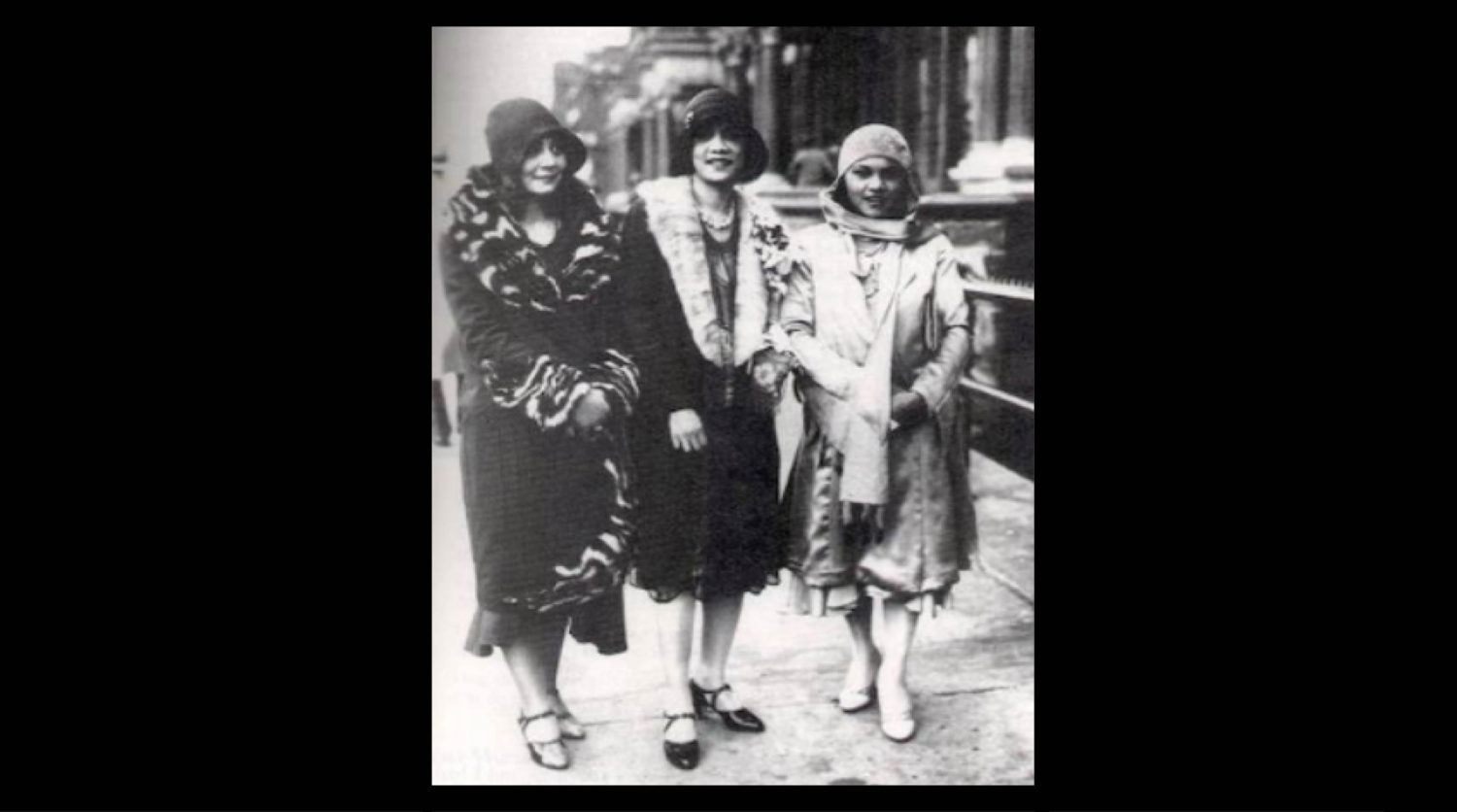A black British renaissance
This is the time for real change to tackle the racism embedded in our system, writes Jermain Jackman.
Image: Three African American women in Harlem during the Harlem Renaissance, 1925.
If we look back over the past few years, we see just how central racism, and our battle against it, has become to British political debate. The equivocation over Brexit, the rise in anti-immigration rhetoric, the ‘hostile environment’, illegal deportations, the Windrush scandal, the surge in hate crime, discrimination and racial abuse against black people – not to mention the election of an on-the-record user of racist language as prime minister.
Contrary to the belief that these incidents are all isolated and run counter to British liberal values, they are in fact reflective of deep-rooted institutional and structural racism. This racism plays out in health, where Covid-19 is having a disproportionate and devastating impact on communities of colour, with black people being four times more likely to die from coronavirus. This is a damning indictment of the government’s handling of this crisis – a government that is ignorant of the systemic challenges that damage black lives. In housing, black and ethnic minorities are far more likely to live in overcrowded and inadequate housing. In education, only 6 per cent of black school leavers attended a Russell Group university. Black boys are three times more likely to be permanently excluded from school and black workers with degrees earn 23.1 per cent less on average than white workers.
The UK government has announced it will be setting up a race inequalities commission to look in to racial inequalities in the UK following the recent Black Lives Matter protests and the disproportionate impact of coronavirus on minority communities. But it risks becoming lost in a multitude of reviews, reports and inquiries on racial disparities that have been followed up with little to no action, if not buried entirely. Reports like the Macpherson report in 1999, the Equality and Human Rights Commission race report in 2016, the Lammy review in 2017 and race disparities audit in 2018, as well as, more recently, the Windrush Lessons Learned review which had no bearing on the government’s latest immigration bill.
Following the 1918 Spanish Flu, which caused economic downturn and exposed similar inequalities to Covid-19, the world saw the emergence of political black selforganisation. The New Negro Movement, founded in 1920, was a cornerstone to the Harlem Renaissance and, created a culture of a more outspoken advocacy for dignity and a refusal to submit quietly to discriminatory, racist and oppressive practices. It empowered thousands of black activists and saw a surge in black radical socialism which sought to unify the working classes.
Black self-organisation in the 1920s inspired subsequent movements here in the UK and around the world which favoured a socialist approach to tackle deep-seated inequalities. The late Bernie Grant MP explored black self-organisation by establishing the Parliamentary Black Caucus in 1989 which focused on the political, economic and social advancement of black people in Britain and acted as a point of contact between the black communities in Britain and the rest of the world.
In more recent times, the Black Lives Matter Movement was established to fight against racial injustice, police brutality and state violence. The movement has become a force to be reckoned with, as we have seen in the mass protests around the world this summer following the murders of George Floyd and Breonna Taylor.
The Black Lives Matter protests have placed significant social pressure on government and businesses to do more to tackle racism, from police reforms to the removal of slave trader statues. And although this type of self-organisation and mass mobilisation is needed more today, these incremental changes are not enough.
Just as the Harlem Renaissance created a new spirit of social consciousness and commitment to political activism, it is time now for the emergence of a black British renaissance that builds on the momentum the BLM movement has generated. This needs to be an era where we celebrate black culture, creativity, activism and innovation, while at the same time challenging the very system that perpetuates the racism and inequality that black communities face in this country and around the world: capitalism.
Malcolm X said it best: “You can’t have capitalism without racism”. To be an anti-racist is to be an anti-capitalist.
The racial inequalities that we see embedded in our society today are directly linked to socio-economic and legal systems that benefit an elite few and exclude the working classes from ownership and wealth generation. It is only by challenging and changing the foundations of capitalism that we can begin to shape a more equal and just world.
Image credit: Blackpost/Wikimedia

